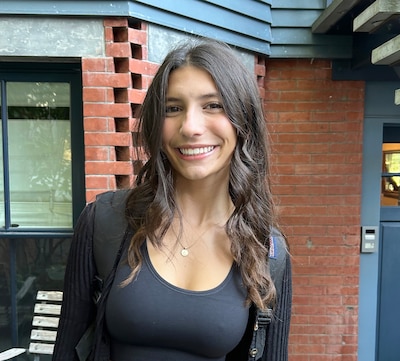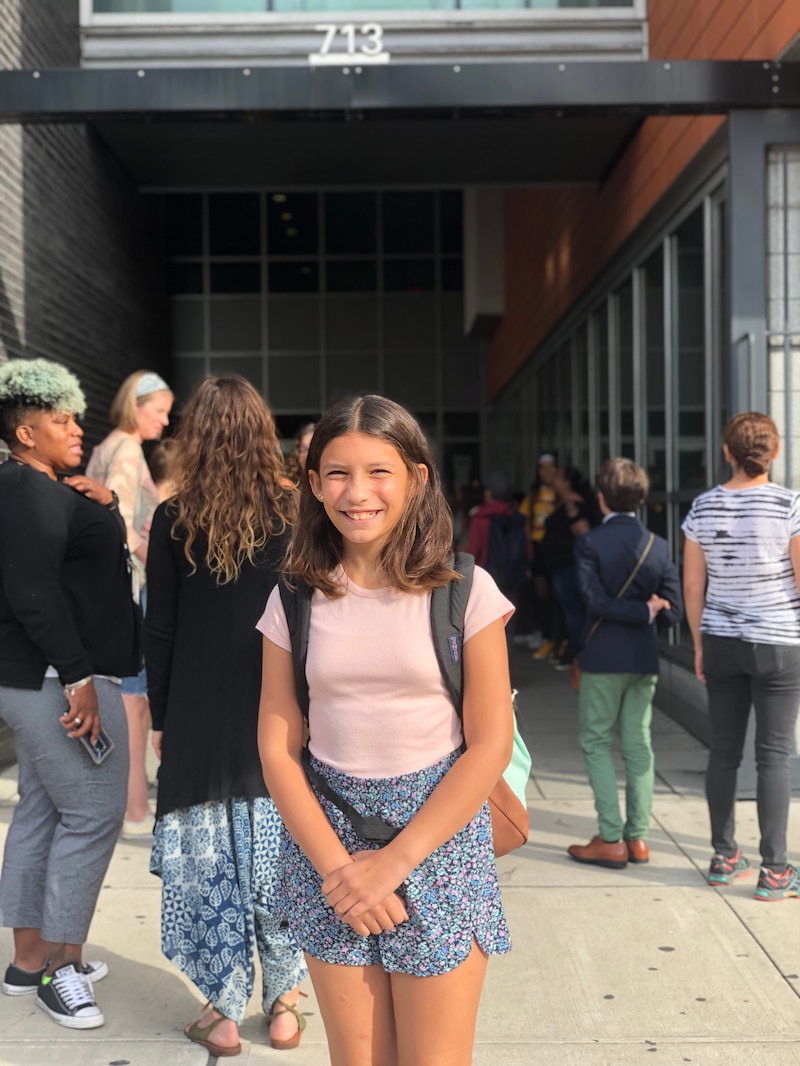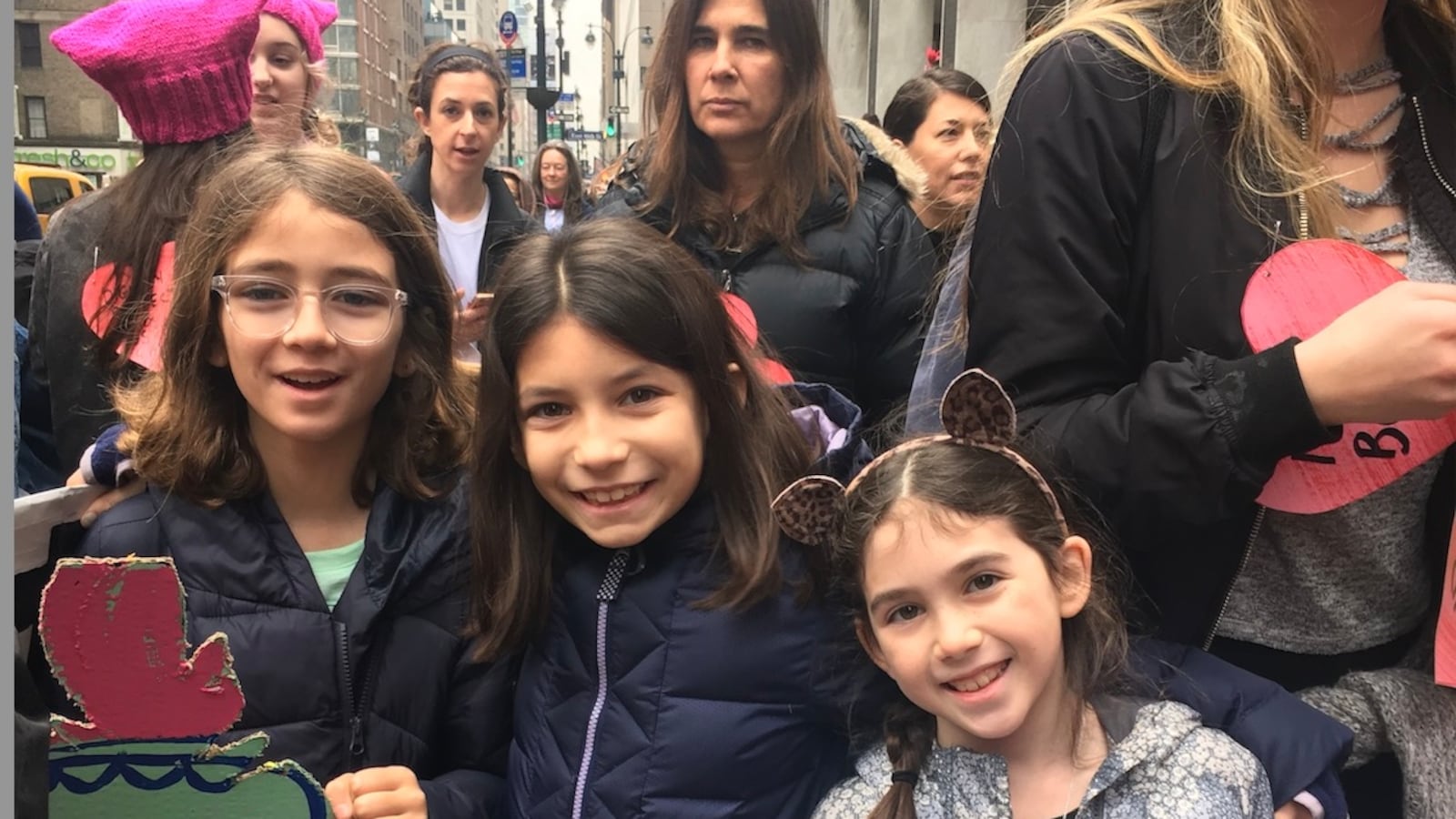We were on the subway heading home from a Broadway show. It was late, and I was sitting next to my mom when both of our phones started blowing up.
I was in sixth grade and had just gotten Instagram. My mom had agreed to let me download the social media app, so long as she also had my login and could monitor it. It would just be for the first couple of months, she said.

That night, out of the blue, I started getting added to a bunch of group chats. The boys in those chats didn’t seem to realize I could see what they were saying. They talked about my body using derogatory language, some of which I had never even heard before; they called me names that made me feel ashamed. Especially because my mom could see everything they had said.
My mom, alarmed, asked me about it.
I shrugged it off. Even though I was only 11, this kind of attention and the discomfort that came with it had already started to feel routine. The comments, the screenshots, the way girls are sexualized without consent — it has become so familiar that many teens and tweens don’t immediately recognize it as wrong.
But it is wrong. And it happens constantly, in ways big and small, online and in person, in school and on city streets, starting way earlier than most adults think.
The problem is pervasive. Some 71% percent of women and girls in the U.S. report having experienced street harassment, with more than two-thirds of them saying it started when they were 13 or younger, according to the nonprofit organization Stop Street Harassment. When I was barely a teenager, a man exposed himself to me at the subway station down the block from my house; it would be the first time of many. And this kind of street harassment doesn’t even take into account what teens experience among peers, in school, at social gatherings, and online.
In seventh grade, after trying to explain to a boy in my grade how exhausting it was to be watched and commented on constantly, he essentially told me it was my fault, saying, “You want people to stop objectifying women, but you’re giving them a reason to do it.” That sentence stuck with me.

Sometimes I wonder if speaking up and pushing back, as I often do, makes a difference. It doesn’t stop the behavior or change how it feels. And it doesn’t erase the excuses I so often hear from family members and educators: “They’re just middle school boys.” As if this behavior stops at a certain age.
Those kinds of responses make me feel so small, conveying with their dismissiveness that I am not someone being harassed but rather someone who is causing drama.
Once, after I spoke up about a particular incident, my school suggested that I participate in a mediation circle with a group of boys, where I was asked to explain why their behavior was inappropriate. This exercise reflected my middle school’s restorative justice approach to conflicts. Not only was the dynamic uncomfortable, but the boys there didn’t seem to take me or the situation seriously.
Even in a post #MeToo era, I feel like I’m expected to adjust to others’ bad behavior, to laugh it off, to change what I wear, to be “the bigger person,” to stop engaging, and to question whether I’m overreacting. It’s confusing because I’m often told these things by family and educators, the same people who taught me to stand up for myself in these scenarios. After all, I grew up going to women’s rights marches with my mom and wore the pink cat hats — the whole nine.
But being a woman means absorbing contradictory messages: Be strong, but not too strong. Be confident, but not intimidating. Speak up, but don’t be too loud. Be attractive, but cover up. Be smart, but not a know-it-all. Be kind, but not naive.
By the time I got to high school, the lines had started to blur. I didn’t always know whether to feel flattered, angry, or both. At times, I tried to lean into the idea that being looked at or catcalled meant being wanted, that it was a form of validation, not victimization. But I couldn’t shake the feeling of shame — shame, I realize now, that never should’ve been mine to carry.
These are survival tactics dressed up as everyday habits.
I wish teens understood how dangerous their words can be. How a “joke” can follow someone for years and affect how they see themselves. How a glare, a snicker, or a post can make them fearful.
This kind of fear changes everything: the way I walk, the way I hold my keys, the way I dress, speak, and laugh. These are survival tactics dressed up as everyday habits. Like how I check my reflection before leaving the house, not just to see how I look, but to ask myself whether I look like a target. Even though that very idea feels like victim-blaming.
Looking back, I don’t know what I would have wanted someone to say to me when all of this started. If I could speak to my younger self — or any girl going through this now — I would tell her: This is a big deal. You are not overreacting. You are not alone. It isn’t your fault. It’s not a compliment. It’s not a joke. It’s not something you should accept just because others minimize it. You are allowed to be angry. You are allowed to speak up. You are allowed to protect your peace. There is so much power in girlhood — so much grace, resilience, and strength — that no one gets to take from you.
That power is still mine. I feel it now, even through the fear and frustration. Even when I don’t know what to do next. Because I’m still here. Still writing. Still fighting to be heard.
Anika Merkin, a 2024-25 Chalkbeat Student Voices fellow, is a junior at Brooklyn Prospect High School in Brooklyn, New York. She finds comfort in cuddling with her cat, watching movies, and making pottery. Through her writing, she hopes to create a space for honesty, connection, and appreciation for the things in life that often go unnoticed.


